Adoptees often look to DNA test kits as a way to connect with biological family members or uncover their ethnic origins. The journey can be emotional and filled with uncertainties, especially when it comes to finding the right test. Privacy and accuracy are common concerns when making this choice.
After testing several DNA kits, I focused on what matters most to adoptees — data privacy, database size, and ease of use. Based on this, I’ve selected the top kits that offer the best mix of features to help you find the answers you’re looking for.
AncestryDNA tops the list as my recommendation. Its extensive database increases the odds of connecting with biological relatives. The kit also offers robust ethnicity estimates, and its secure privacy settings let you control how your data is used. These features collectively make AncestryDNA the most suited option for adoptees.
Short on Time? Here are the best DNA test kits for adoptees
- AncestryDNA – Our top pick thanks to its vast database of 18 milion samples which make it easier to track down family members; you can also explore its historical records, and all that at an affordable price of $99.
- MyHeritage – The most affordable DNA kit on the market at only $89 (with frequent discounts which bring it down to $39); connect with relatives and build your family tree, explore your ethnicity and more.
- LivingDNA – Great DNA kit if you want to get insights into your health based on your DNA; you can get a combined ancestry and health kit for only $199.
- FamilyTreeDNA – Good for tracing down maternal or paternal heritage separately (or both) with a great family tree builder and optional health insights.
- Nebula Genomics – Whole genome sequencing provides you with detailed insight into your ethnicity and ancestry, as well as your traits.
| 🧪 Sample Type | ✈ Ships outside the US? | 🌎 Free Shipping? | ❓ Free raw DNA upload? | 💰 Price | |
|---|---|---|---|---|---|
| AncestryDNA | Saliva sample | Yes | No | No | Starts at $99 |
| MyHeritage | Cheek swab | Yes | Yes (on 2 or more kits) | Yes | $89 |
| LivingDNA | Cheek swab | Yes | Yes (on 3 or more kits) | Yes | Starts at $119 |
| FamilyTreeDNA | Cheek swab | Yes | No | Yes | Starts at $79 |
| Nebula Genomics | Cheek swab | Yes | No | Yes | Starts at $249 |
Our Best DNA Kits for Adoptees Reviewed
1. AncestryDNA — Best Overall DNA Test Kit for Finding Your Biological Family
- The largest database of DNA in the world (18 million samples)
- Family tree builder with access to historical records
- Simple saliva swab
- Results in 6 to 8 weeks
AncestryDNA’s extensive database is particularly beneficial for adoptees. By submitting your DNA, the system compares your genetic markers with those in its vast database, enhancing the likelihood of finding biological family members. With a larger database, your chances of success increase.
Furthermore, AncestryDNA’s ethnicity estimate feature offers a thorough breakdown of your origins, categorizing your DNA into regions to provide insights into your ethnic background. This information serves as a valuable starting point in your quest to connect with family.
Thorough privacy settings are another asset. You decide who can view your results and how your data is shared. If privacy is a significant concern, these options provide a sense of control.
Finally, AncestryDNA’s user interface is straightforward. It simplifies the process of interpreting complex genetic data. This ease of use allows you to focus more on connecting with family and less on deciphering results.
2. MyHeritage — Affordable DNA Kit for Adoptees
- Offers a relative finder feature
- Bring your family tree to life with images, videos and music
- Simple saliva swab
- Results in 3-4 weeks
Cost is a key advantage with MyHeritage. While still offering a respectable database size, it is generally more affordable than other leading DNA kits. This makes it accessible if you’re on a budget but still keen on finding your biological family.
MyHeritage also offers a Family Matching feature. This tool not only identifies potential relatives but ranks them by the likelihood of your relationship. It helps you focus your search effectively.
Privacy settings on MyHeritage are also strong. You can restrict who sees your information, ensuring a secure search process when looking for family members.
The user interface is another plus. It’s intuitive, making the process of finding and connecting with relatives simpler. You can quickly access essential features without getting bogged down in technical jargon or complex navigation.
3. LivingDNA — Combined Health and Ancestry Insights Based on Your DNA
- Health insights along with your ancestry report
- Explore your ancestru and ethnicity
- Simple saliva swab
- Results in 6-8 weeks
LivingDNA provides a unique combination of health and ancestry data. While you’re searching for biological relatives, it simultaneously offers insights into health predispositions that can run in your family. This two-in-one feature can be invaluable for adoptees.
The Family Networks feature on LivingDNA uses your DNA data to construct potential family trees. This assists in pinpointing family members who have also taken the test, streamlining your search for biological relatives.
Regarding privacy, it allows you to manage your data effectively. You have the option to keep your information confidential while conducting your search.
Its user interface is straightforward, focusing on delivering information without unnecessary complexity. The dashboard is designed for easy access to both your health and ancestry data, minimizing the learning curve as you delve into your genetic roots.
4. FamilyTreeDNA — Trace Maternal and Paternal Lineage Separately
- Traces maternal and paternal haplogroups
- Matches you with relatives intuitively
- Simple saliva swab
- Results in 6-8 weeks
FamilyTreeDNA offers specialized tests for tracing either your maternal or paternal lineage, a unique feature among DNA kits. If you’re an adoptee looking to focus on one side of your biological family, it can provide targeted results.
The mtDNA and Y-DNA tests separately analyze maternal and paternal lines. This allows you to prioritize one line of descent, possibly making it easier to locate specific family members.
Privacy settings are robust, letting you control the visibility of your data. You can choose to share only with potential family matches or keep it entirely private.
The user interface is clean and functional, designed to give you straightforward access to both types of lineage tests. The focus is on making the process of finding your biological family as seamless as possible.
Get Started With FamilyTreeDNA
5. Nebula Genomics — Whole Genome Sequencing for Detailed Ancestry Information
- Large database and whole genome sequencing
- Traces your maternal and paternal lines
- Simple saliva swab
- Results in 8-10 weeks
Nebula Genomics uses whole genome sequencing, offering a level of detail that most other kits can’t match. For adoptees, this means a more comprehensive look at your ancestry, which can aid in identifying biological relatives.
The expansive data allows it to provide highly detailed ancestry reports. These reports can pinpoint specific regions of origin more accurately, offering clues that could lead you to your biological family.
Privacy is also a strong point for Nebula Genomics. You can keep your data completely private, or share it only with trusted parties, providing you a secure platform for your search.
Navigating its user interface is straightforward. The design focuses on presenting complex genomic data in an easily digestible format, enabling you to better understand your ancestry as you seek out your biological family.
Get Started With Nebula Genomics
Tips On How to Choose the Best DNA Test Kit for Adoptees
I’ve used the following tips to determine which DNA kits offer the most value to adoptees seeking to find their biological families.
- Database Size. A larger database increases your chances of finding a match. I evaluated kits by comparing the size of their databases to the frequency of successful matches for adoptees.
- Family Matching Features. The ability to find and sort potential family members is crucial. I tested kits that offer these features, checking how accurately and quickly they could identify and rank potential family members.
- Privacy Options. Your data’s security is paramount, especially with the emotional implications of searching for biological family. I examined the privacy settings of each kit, noting options for data sharing and storage.
- Special Features. Sometimes extra features, like health insights or maternal/paternal lineage tracing, can aid in your search. I looked into kits that offered these special features to see how relevant and accurate they were for adoptees.
- Ease of Use. A complicated test can deter you from finding the information you seek. I used each kit and assessed how intuitive the user interface was, especially for those who might not be tech-savvy.
By considering these features, you can make an informed decision tailored to your specific needs as an adoptee.
Privacy Concerns and How to Address Them
When you’re an adoptee looking for biological relatives, privacy can be a big concern. Many kits offer varying levels of data protection. Look for kits that allow you to keep your results private or share them only with trusted parties. Some kits also offer two-factor authentication for added security.
Understanding Ethnicity Estimates
Ethnicity estimates provide valuable insights into where your biological family comes from. AncestryDNA and Nebula Genomics, for example, analyze your DNA to classify your roots into specific regions or ethnic groups, which can be particularly useful if you have little initial information about your ancestry.
The Importance of Updates
As more people undergo testing, databases expand, and algorithms become more sophisticated. This growth can provide you with updated information, potentially connecting you to new relatives or offering a more detailed analysis of your ethnic heritage. Testing kits with active user communities are likely to offer updates that can be crucial for your research.
Using Third-Party Tools
If you’re keen to get the most out of your DNA data, there are third-party tools available. Websites like GEDmatch allow you to upload raw DNA data from your test to cross-reference with other databases. This can widen your search and offer more chances of finding biological family. Always remember to review the privacy policies when using third-party services.
Quick Comparison Table: Best DNA Tests for Adoptees
To make your choice easier, I’ve created a quick comparison table. This table outlines key features that matter most to adoptees.
| DNA Kit (Ranking) | Database Size | Family Matching | Special Features | Privacy Options | Price |
|---|---|---|---|---|---|
| AncestryDNA (🥇) | 18 milion | Yes | Ethnicity Estimate | Strong | $99.00 |
| MyHeritage (🥈) | 6.5 milion | Yes | Family Matching Rank | Strong | $89.00 |
| LivingDNA(🥉) | 300, 000 | No | Combined Health & Ancestry | Moderate | $124.00 |
| FamilyTreeDNA | 2 milion | Yes | Maternal/Paternal Lineage | Strong | $79.00 |
| Nebula Genomics | Small (data unavailable) | No | Whole Genome Sequencing | Strong | $249.00 |
Get the Best DNA Test Kit for Adoptees
Choosing the right DNA test kit can make all the difference when you’re an adoptee seeking to find your biological family. A good kit can provide detailed ancestry insights, help locate potential relatives, and keep your data secure. These features directly address the concerns and needs you may have in your search for family.
Based on my extensive testing, AncestryDNA is the best DNA test kit for adoptees. It offers a large database to maximize your chances of finding relatives, alongside strong privacy options and easy-to-understand ethnicity estimates. These features make it the most effective option for your unique needs.
FAQs on Best DNA Kits for Adoptees
What Features Should I Look for in a DNA Test Kit as an Adoptee?
Look for a large database size, family matching features, privacy options, special features like health insights or lineage tracing, and an easy-to-use interface. These will help you find biological family members more efficiently while ensuring data security.
How Accurate are the DNA Matches?
Accuracy varies among kits but generally, first-degree relatives like parents or siblings are highly likely to be accurate. I tested this by checking the reported relationships against known relationships.
Is AncestryDNA Really the Best Choice for Adoptees?
Based on my testing, yes. AncestryDNA offers the most comprehensive set of features relevant to adoptees, such as a large database and strong privacy options. It also provides a clear and detailed ethnicity estimate.
What Are the Privacy Implications of Using a DNA Test Kit?
Privacy concerns are valid, especially for adoptees who might be dealing with sensitive family situations. Choose a kit with strong privacy settings, allowing you to control who sees your data and how it’s used.
How Do I Use the Results to Find My Biological Family?
Once you get your results, use the family matching and sorting features to identify potential relatives. From there, you can reach out to matches to establish a connection and potentially discover your biological family.
Can I Get Both Ancestry and Health Information?
Some kits, like LivingDNA, offer both ancestry and health insights. These can be particularly useful if you’re also interested in understanding genetic health predispositions that could be present in your biological family.
To summarize, here are the best DNA kits for adoptees…
| Our Rank | Provider | Our Score | Starting Price | |
|---|---|---|---|---|
| 1 | 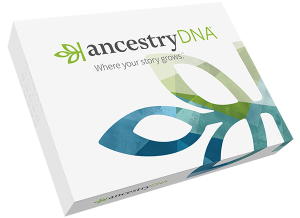  | Read Review | $99.00 | Visit Website |
| 2 | 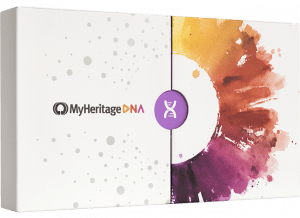  | Read Review | $89.00 | Visit Website |
| 3 | 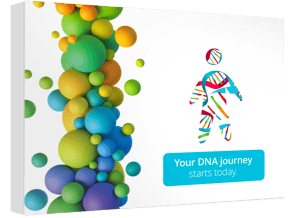  | Read Review | $124.00 | Visit Website |
| 4 | 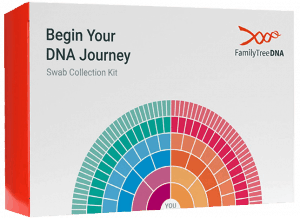 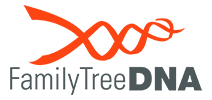 | Read Review | $79.00 | Visit Website |





